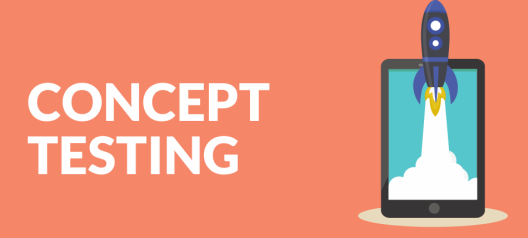In today's competitive business landscape, understanding consumer preferences and market dynamics is crucial for success. Concept testing market research has emerged as a powerful tool for businesses to validate their ideas, products, or services before launching them into the market. This article delves into the significance of concept testing and how it can unlock success for businesses.
Understanding Concept Testing
Concept testing involves presenting a new product or idea to a target audience to gather feedback and assess its potential viability in the market. It allows businesses to gauge consumer reactions, preferences, and perceptions before investing resources into full-scale development and marketing. By soliciting feedback early in the development process, companies can identify potential issues, refine their offerings, and maximize their chances of success upon launch.
The Process
The process of concept testing typically involves several key steps. First, businesses define the concept they want to test, whether it's a new product, service, or marketing campaign. Next, they identify the target audience that aligns with their desired market segment. Then, they develop materials such as prototypes, mock-ups, or detailed descriptions to present to the participants.
During the testing phase, participants are asked to provide feedback on various aspects of the concept, including its appeal, relevance, and perceived value. This feedback can be collected through surveys, focus groups, interviews, or online platforms. Once the data is collected and analyzed, businesses can use the insights to make informed decisions about refining the concept or proceeding with further development.
The Benefits
Concept testing offers numerous benefits for businesses seeking to innovate and differentiate themselves in the market. Firstly, it helps mitigate the risk of launching a product or idea that may not resonate with consumers. By gathering feedback early on, businesses can identify potential shortcomings and address them proactively, saving time and resources in the long run.
Secondly, concept testing provides valuable insights into consumer preferences and trends, allowing businesses to tailor their offerings to better meet customer needs. By understanding what resonates with their target audience, companies can develop products and marketing strategies that are more likely to succeed in the marketplace.
Furthermore, concept testing can also help businesses refine their messaging and positioning strategies. By testing different messaging variations or value propositions, companies can identify which resonates most strongly with consumers and adjust their communication strategies accordingly.
Real-World Applications
Concept testing is widely utilized across industries, from consumer goods and technology to healthcare and finance. For example, a consumer electronics company may conduct concept testing to gather feedback on a new smartphone design before mass production. Similarly, a pharmaceutical company may test different packaging designs for a new medication to ensure it is user-friendly and meets regulatory requirements.
In the food and beverage industry, concept testing can help companies introduce new flavors or product variations that appeal to changing consumer preferences. By testing different concepts with target consumers, businesses can identify which ones have the highest potential for success and allocate resources accordingly.
Conclusion
Concept testing market research is a powerful tool for businesses looking to unlock success in today's competitive market landscape. By soliciting feedback from target consumers early in the development process, companies can identify opportunities, mitigate risks, and optimize their offerings for maximum impact. Whether launching a new product, service, or marketing campaign, concept testing provides valuable insights that can inform strategic decision-making and drive business growth. Embracing concept testing as an integral part of the product development process can position businesses for success in an ever-evolving marketplace.
